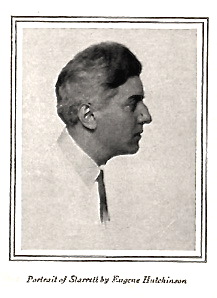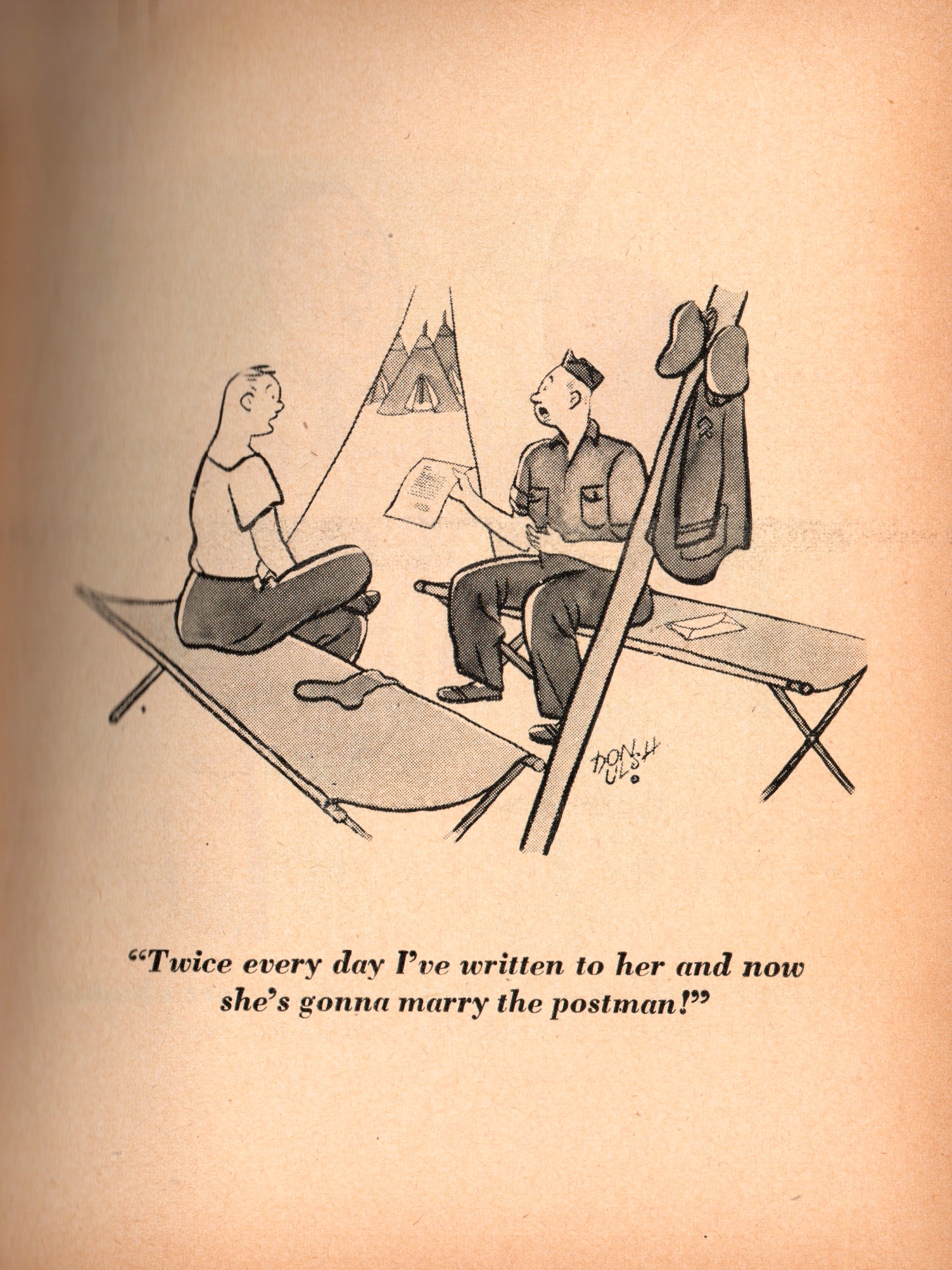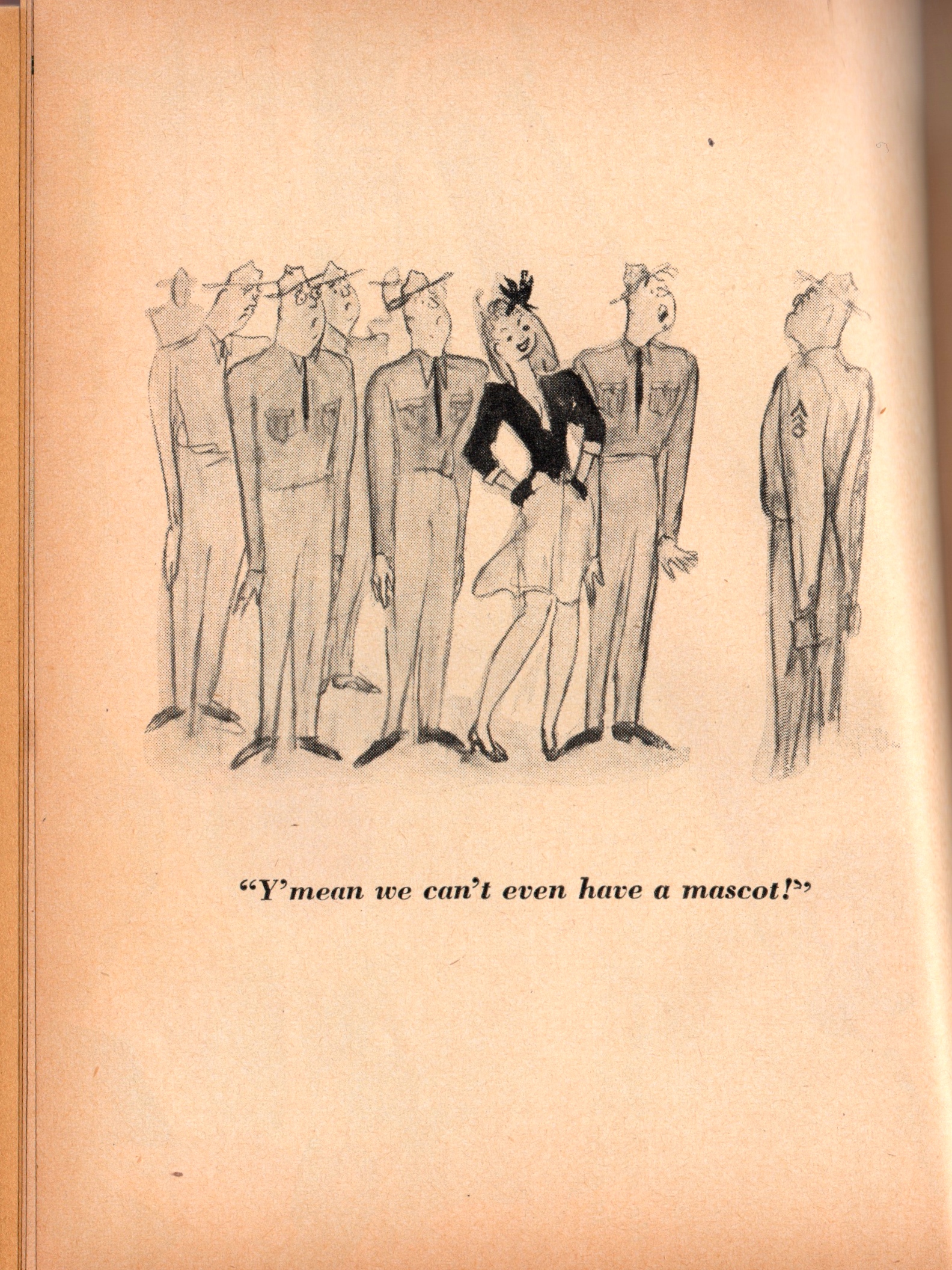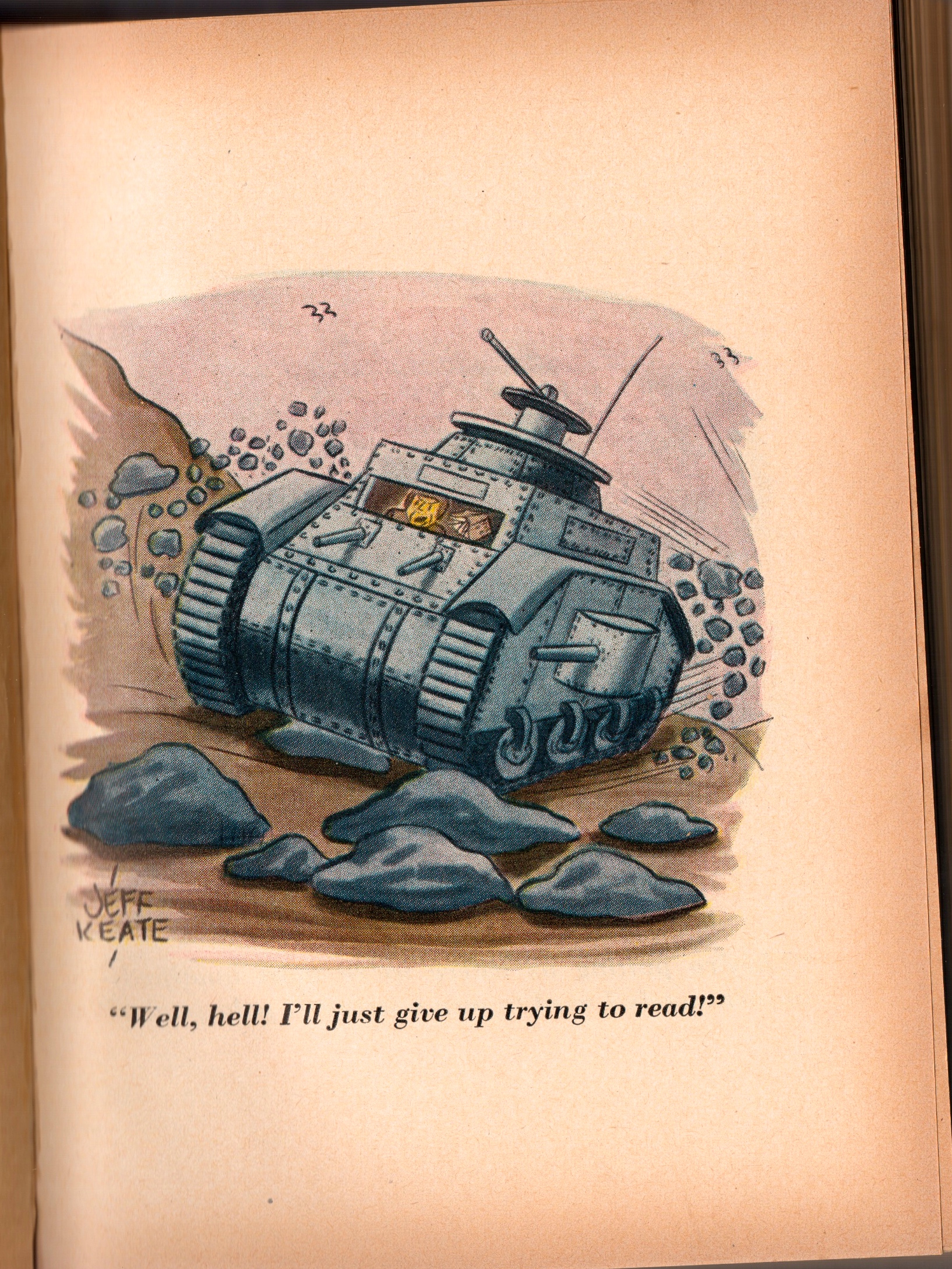Vincent Starrett's little limerick and how it helped win WW II
There are some Vincent Starrett books that are worth having purely for their relationship to the author. A first edition copy of The Private Life of Sherlock Holmes, for example, shows Starrett at the height of his story telling powers and Sherlockian enthusiasm.
The 'top' of the box. Note Starrett's name in the upper left corner.
And then there are oddments like this one: The Kitbook for Soldiers, Sailors and Marines. Starrett’s contribution here is quite minor, but the book itself is a genuine piece of Americana.
The book was published in 1942 and reprinted in 1943. There are a few states of printing, so you might find a few variations from the copy I’ll describe. It was published in Chicago, by the Consolidated Book Publishers, with R(uth). M(arjorie). Barrows compiling the short stories, verse and cartoons and E.X. Pastor as associate editor. (The two had several volumes published during the war, almost all of a similar nature featuring reprints of light verse and short stories intended to draw a smile.)
The box that could be addressed to your favorite serviceman for a mere 3 cents.
The Kitbook for Soldiers, Sailors and Marines came with a box that could be addressed to your favorite serviceman for a mere 3 cents.
It’s worth noting that Vincent Starrett’s name is visible on the box’s selected list of contributors, along with other still-familiar names like Damon Runyan, Ellery Queen and O. Henry.
As the box boasts, the contents includes short stories from dozens of writers, along with several short verses and (as the box boasts) “96 gay cartoons for fighting men, 40 in full color.”
The first page of J.D. Salinger's short story "The Hang of It."
One name missing from the list on the cover box was that of young J.D. Salinger, who was writing short stories at the time. Catcher in the Rye was still several years away from sweeping the nation and driving its author into his infamous hermit-like seclusion. Salinger’s presence is significant for Starrett collectors, since his short story “The Hang of It,” is included here, the first time a Salinger story appeared between hard covers.
As a historical artifact, The Kitbook for Soldiers, Sailors and Marines is a fascinating look at what was considered suitable entertainment for the men (and it was clear this book was entitled for men only) who were going to fight for Uncle Sam around the globe. The fact that it would never have been approved today is beside the point. In the pre-Playboy era, this was about as racy as one could get in a mainstream publication. The stories are generally upbeat and carried with them the feel of a Norman Rockwell vision of what the war was all about.
Starrett’s contribution is typical, but is so brief it seems insufficient to defend his being promoted on the book’s cover box. (Why was he promoted so well? Remember that the book was published in Chicago where Starrett’s name carried weight, and it’s likely that he was friends with the editors.)
Starrett's limerick appeared at the bottom of a short story entitled "Wine with a Lady," by W.E. Johns.
Nevertheless, his limerick hits the volume’s tone quite well:
Little Girls
By Vincent Starrett
I’m fond of lawn tennis and swimming,
I like turkey roasted (with trimming),
I adore little girls
For their graces and curls,
And because they grow up to be wimming.
Not one of Starrett’s more memorable contributions to world of poetry.
And yet, it is no more or less than most of the other contributions. For more “substantial” verse, we have “Casey at the Bat” and “The Man on the Flying Trapeze.” Damon Runyon’s usual gaggle of con artists make a largely harmless appearance in “Madame La Gimp.” The Ellery Queen contribution, “Man Bites Dog,” feels lightweight when compared with his early novels, though its inclusion here is likely due to Ellery’s romance with Paula Paris, who was introduced in The Four of Hearts. Even Salinger’s story is slight at best, a shaggy dog story with an “unexpected” ending that’s telegraphed in the first paragraph. Holden Caulfield’s place in American letters is quite safe.
But we can’t expect too much depth here. This little volume was intended to be tossed into the kits of the fighting men who were leaving home to face horrors few could predict and none would ever forget. If it gave these men a laugh or a moment’s thought of the “wimming” waiting for them at home, it achieved its purpose.
The title page with its image of a lonely solder as he reads.
If you decide to buy a copy for yourself (and I recommend that you do), take your time and do some research on the current state of the market. I don’t know how many copies were published, but there are a lot of copies for sale. Do some checking around and make sure you’re buying one that meets your needs. The Salinger connection tends to drive up prices, but you can find a perfectly acceptable copy out there for $10 or less if you are patient and resourceful. If you want the mailing box, it will be a little more. If you want the mailing box unused, that will be a few bucks more. So, in all, call it $20.



